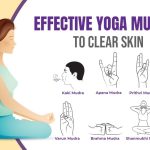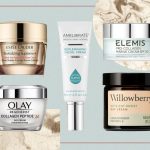Revolutionary Skin Bleaching Questionnaire: Discover Your Perfect Skincare Solution Now!
Skin Bleaching Questionnaire: Understanding the Pros and Cons
Introduction
Hello, Readers! Today, we will delve into the topic of skin bleaching and explore the use of questionnaires in this context. Skin bleaching is a controversial practice that involves using products to lighten the skin tone. It is important to approach this subject with sensitivity and gather comprehensive information before making any decisions. In this article, we will provide a detailed analysis of the skin bleaching questionnaire, its purpose, advantages, disadvantages, and how it can help in understanding this practice better. Let’s dive in!
2 Picture Gallery: Revolutionary Skin Bleaching Questionnaire: Discover Your Perfect Skincare Solution Now!


What is a Skin Bleaching Questionnaire?
📝 A skin bleaching questionnaire is a tool used to gather essential information about individuals engaging in or considering skin bleaching. It consists of a series of questions that aim to understand the motives, experiences, and perceptions of the participants regarding this practice.

Image Source: researchgate.net
A questionnaire may include queries about personal background, reasons for skin bleaching, preferred products, application methods, duration, and impacts on physical and mental well-being.
Using a questionnaire helps researchers and experts in the field gain valuable insights into the motivations behind skin bleaching, potential risks, societal factors, and the effectiveness of various treatment options.
By analyzing the responses, professionals can better understand the challenges faced by individuals using skin bleaching products, develop suitable interventions, and educate the public about the pros and cons associated with this practice.
Who Can Benefit from a Skin Bleaching Questionnaire?

Image Source: researchgate.net
🙋♀️ A skin bleaching questionnaire can benefit various stakeholders, including researchers, dermatologists, skincare brands, policymakers, and individuals considering or currently using skin bleaching products.
Researchers can use the questionnaire to gather data for academic studies, identify trends, and assess the prevalence of skin bleaching in different populations.
Dermatologists can utilize the questionnaire to understand their patients’ motives and concerns, enabling them to provide personalized and effective guidance.
Skincare brands can gain insights into consumer preferences, concerns, and expectations related to skin bleaching products, leading to the development of safer and more tailored solutions.
Policymakers can analyze questionnaire responses to inform their decisions on regulations and guidelines for the production, marketing, and use of skin bleaching products.
Individuals considering or using skin bleaching products can benefit from the questionnaire by reflecting on their motivations, understanding potential risks, and making informed decisions about their skincare practices.
When Should a Skin Bleaching Questionnaire be Administered?
📅 A skin bleaching questionnaire can be administered at various stages – before, during, and after the use of skin bleaching products.
Before: Administering the questionnaire before starting skin bleaching helps gather baseline data, understand motivations, and assess knowledge and expectations.
During: Questionnaires administered during the use of skin bleaching products provide insights into experiences, side effects, and product effectiveness.
After: Post-usage questionnaires help measure satisfaction levels, evaluate impacts, and gather feedback on long-term changes and challenges.
By collecting data at different stages, professionals can track trends, monitor changes, and provide more targeted advice and support.
Where Can a Skin Bleaching Questionnaire be Conducted?
🌍 A skin bleaching questionnaire can be conducted in various settings, including research institutions, dermatology clinics, online platforms, and community centers.
Research institutions and dermatology clinics often have the necessary infrastructure and expertise to administer questionnaires efficiently and maintain data integrity.
Online platforms provide a convenient and accessible way for individuals to participate in the questionnaire, especially for those who may feel more comfortable sharing their experiences anonymously.
Community centers can organize in-person data collection sessions, ensuring inclusion and representation of diverse populations.
It is crucial to create a safe and non-judgmental environment for participants, respecting their privacy and protecting their identities.
Why is a Skin Bleaching Questionnaire Important?
❓ A skin bleaching questionnaire plays a vital role in understanding the complex factors associated with this practice and its implications.
It helps shed light on the motivations behind skin bleaching, such as beauty standards, societal pressures, cultural influences, and personal experiences of discrimination or prejudice.
Questionnaires also assist in identifying the potential risks and side effects of using skin bleaching products, ranging from skin irritation and hyperpigmentation to long-term health consequences.
Furthermore, questionnaires enable researchers and experts to gather evidence-based data, contribute to academic research, and develop educational campaigns to promote safe skincare practices.
Overall, a skin bleaching questionnaire empowers individuals to share their experiences, assists professionals in providing appropriate guidance, and facilitates informed decision-making regarding skin bleaching.
How to Design an Effective Skin Bleaching Questionnaire?
✏️ Designing an effective skin bleaching questionnaire requires careful consideration of the research objectives, target population, and the desired outcomes.
Here are some key factors to keep in mind:
Clearly define the purpose of the questionnaire.
Include a mix of open-ended and closed-ended questions for comprehensive data collection.
Ensure the questions are clear, concise, and easy to understand.
Consider including demographic questions to understand variations across different groups.
Maintain participant anonymity and confidentiality to encourage honest responses.
Pilot test the questionnaire to identify any issues and make necessary improvements.
Consider offering incentives to encourage participation and increase valid response rates.
Advantages of Using a Skin Bleaching Questionnaire
✅ Using a skin bleaching questionnaire offers several advantages:
1. Comprehensive Data: Questionnaires allow for efficient collection of a wide range of data, including personal experiences, motivations, and perceptions.
2. Quantifiable Analysis: Responses can be quantified and analyzed statistically, providing valuable insights into trends and patterns.
3. Tailored Interventions: Questionnaire results help professionals develop personalized interventions and advice based on individual experiences and concerns.
4. Identifying Knowledge Gaps: Questionnaires can reveal gaps in knowledge and misconceptions, allowing for targeted education and awareness campaigns.
5. Informed Decision-Making: Participants can reflect on their experiences and make more informed decisions about their skincare practices.
Disadvantages of Using a Skin Bleaching Questionnaire
⛔ It is essential to acknowledge the potential disadvantages of using a skin bleaching questionnaire:
1. Self-Reporting Bias: Participants may provide inaccurate or incomplete information due to social desirability bias or recall bias.
2. Limited Generalizability: Findings from a questionnaire may not be representative of the entire population, as participants are self-selected.
3. Lack of Contextual Information: Questionnaires may not capture the nuances and complexities of individual experiences, requiring supplementary qualitative research.
4. Ethical Considerations: Ensuring participant privacy, informed consent, and sensitive data handling are essential ethical considerations when using questionnaires.
5. Limited Depth of Information: Questionnaires may not provide in-depth insights into the emotional and psychological impacts of skin bleaching, which may require additional qualitative research methods.
Frequently Asked Questions (FAQs)
1. Is skin bleaching safe?
🔒 Skin bleaching can pose risks and should be approached with caution. It is advisable to consult a dermatologist before using any skin bleaching products.
2. Are there natural alternatives to skin bleaching?
🌿 Yes, there are natural alternatives to skin bleaching, such as using sunscreen, exfoliating regularly, and maintaining a healthy lifestyle to promote even skin tone.
3. How long does it take to see results from skin bleaching?
⏰ The time to see results may vary depending on the individual, the product used, and the desired outcome. It is important to follow the instructions provided and be patient.
4. Can skin bleaching cause long-term damage?
⚠️ Prolonged and excessive use of skin bleaching products can lead to adverse effects, including thinning of the skin, increased sun sensitivity, and permanent skin damage. Consulting a dermatologist is crucial.
5. How can I maintain healthy and radiant skin without resorting to skin bleaching?
🌟 Maintaining healthy skin involves adopting a skincare routine that includes cleansing, moisturizing, sun protection, and lifestyle factors like a balanced diet, regular exercise, and adequate sleep.
Conclusion
✅ In conclusion, a skin bleaching questionnaire serves as a valuable tool in understanding the motivations, experiences, and perceptions of individuals engaging in or considering skin bleaching. It helps researchers, professionals, and individuals make informed decisions and develop suitable interventions. By acknowledging the advantages and disadvantages of using a questionnaire and addressing frequently asked questions, we hope to encourage open dialogue, promote safer skincare practices, and foster inclusivity. Let’s embrace healthy and radiant skin while celebrating diverse beauty!
Final Remarks
Disclaimer: The information provided in this article is for educational purposes only and should not be considered as professional medical or skincare advice. It is important to consult a qualified dermatologist or healthcare professional before making any decisions regarding skin bleaching or other skincare practices.
This post topic: Skin Care


